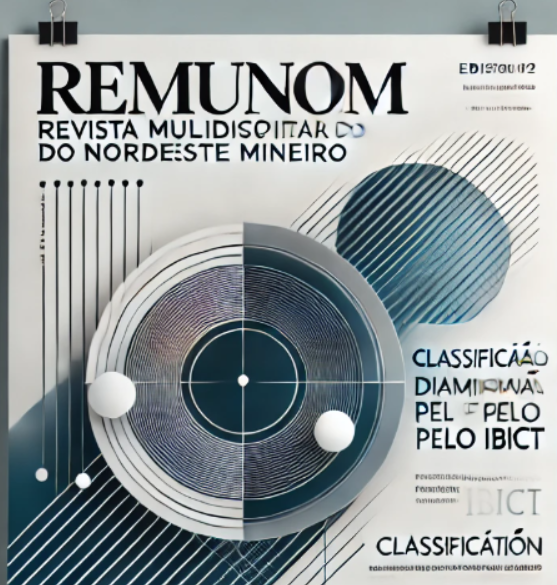FROM GAME TO GEOMETRIC KNOWLEDGE: THE MEDIATING DIMENSION OF EDUCATIONAL GAMES IN THE LEARNING PROCESS
DOI:
https://doi.org/10.61164/9jc3hs29Keywords:
Educational games, Teaching geometry, Active methodologies, Flat and spatial shapes.Abstract
This article aims to investigate the effects of using educational games — specifically Tangram and Geometric Dominoes — in the teaching-learning process of flat and spatial geometric shapes. The research was conducted with an eighth-grade class of elementary school, adopting an applied and qualitative approach, with an emphasis on active learning methodologies. The pedagogical interventions were organized through workshops, in which students participated in individual and collaborative activities mediated by the games. To assess the impacts of the proposal, assessment instruments were applied in the form of pre-test and post-test. The results showed significant gains in student motivation, in the development of cognitive strategies and in mathematical performance, indicating that the adopted approach contributed to a more engaged and meaningful learning process. It is concluded that the inclusion of educational games is a fundamental and viable strategy to favor teaching practice and expand the possibilities of teaching Geometry in the context of basic education.
Downloads
References
ALBUQUERQUE, B. Matemática é a matéria mais difícil para alunos do ensino médio. Radio Agência, 2022. Disponível em: https://agenciabrasil.ebc.com.br/radioagencia-nacional/educacao/audio/2022-05/matematica-e-disciplina-mais-dificil-para-alunos-do-ensino-medio#:~:text=A%20matem%C3%A1tica%20continua%20sendo%20a,os%20dados%20do%20Censo%20Escolar. Acesso em: 08 abr. 2023.
ARBENI, Wawan et al. Test reliability analysis in educational evaluation: a quantitative approach to consistency and validity. Holistic Science, Binjai, v. 5, n. 1, p. 59–64, 2025. DOI: 10.56495/hs.v5i1.838.
BRASIL. Parâmetros Curriculares Nacionais: Matemática. Brasília, DF: MEC/SEF, 1997.
COSTA, A. L.; DOMITE, M. C. S. Jogos no ensino de matemática: uma possibilidade para o desenvolvimento do pensamento geométrico. Bolema: Boletim de Educação Matemática, Rio Claro, v. 34, n. 67, p. 1001–1020, 2020. DOI: https://doi.org/10.1590/1980-4415v34n67a12. DOI: https://doi.org/10.1590/1980-4415v34n67a12
FORSTER, C.; HORBACH, I. C. Ensino de geometria plana com o auxílio do Tangram. Trabalho acadêmico – Universidade do Estado de Santa Catarina (UDESC), 2012.
FRAGA, M. da S. A importância do ensino da Geometria no Ensino Fundamental. Trabalho acadêmico – Universidade Federal de Uberlândia, Uberlândia-MG, 2021.
PRODANOV, C. C.; FREITAS, E. C. de. Metodologia do trabalho científico: métodos e técnicas da pesquisa e do trabalho acadêmico. 2. ed. Novo Hamburgo: Feevale, 2013.
SANTIAGO, P. V. da S.; ALVES, F. R. V. Aplicações das formas geométricas na escola da rede pública de ensino do município de Quixeramobim – CE. Tangram – Revista de Educação Matemática, 2020. DOI: https://doi.org/10.30612/tangram.v3i1.10079
SILVA, J. B. da; SANTANA, A. N. de. Jogos didáticos no ensino de Matemática: um mapeamento dos trabalhos publicados nos Anais do IV CONEDU. Trabalho acadêmico – Universidade Federal de Pernambuco, Recife-PE, 2018.
SILVA, J. B. da. O laboratório de ensino de Matemática na concepção dos professores das escolas municipais de Gravatá-PE. Monografia (Licenciatura em Matemática) – Universidade Federal de Pernambuco, Caruaru-PE, 2015.
SILVA, R. A.; BORBA, M. C. O uso de materiais manipulativos na aprendizagem de conceitos geométricos no ensino fundamental. Revista Zetetike, Campinas, v. 27, e020042, 2019. DOI: https://doi.org/10.20396/zet.v27i0.8650007.
SOUZA, V. C.; CURY, H. K. Jogos didáticos no ensino da Matemática: contribuições para a aprendizagem significativa. Revista de Educação Matemática da Região Sul (REMat), v. 1, n. 2, p. 46–64, 2021. DOI: https://doi.org/10.35700/remat.v1n2.2021.13429
VYGOTSKY, L. A formação social da mente. São Paulo: Martins Fontes, 2007.
Downloads
Published
Issue
Section
License
Copyright (c) 2025 Revista Multidisciplinar do Nordeste Mineiro

This work is licensed under a Creative Commons Attribution-NonCommercial-ShareAlike 4.0 International License.
Authors who publish in this journal agree to the following terms:
Authors retain copyright and grant the journal the right of first publication, with the work simultaneously licensed under the Creative Commons Attribution License, which permits the sharing of the work with proper acknowledgment of authorship and initial publication in this journal;
Authors are authorized to enter into separate, additional agreements for the non-exclusive distribution of the version of the work published in this journal (e.g., posting in an institutional repository or publishing it as a book chapter), provided that authorship and initial publication in this journal are properly acknowledged, and that the work is adapted to the template of the respective repository;
Authors are permitted and encouraged to post and distribute their work online (e.g., in institutional repositories or on their personal websites) at any point before or during the editorial process, as this may lead to productive exchanges and increase the impact and citation of the published work (see The Effect of Open Access);
Authors are responsible for correctly providing their personal information, including name, keywords, abstracts, and other relevant data, thereby defining how they wish to be cited. The journal’s editorial board is not responsible for any errors or inconsistencies in these records.
PRIVACY POLICY
The names and email addresses provided to this journal will be used exclusively for the purposes of this publication and will not be made available for any other purpose or to third parties.
Note: All content of the work is the sole responsibility of the author and the advisor.



